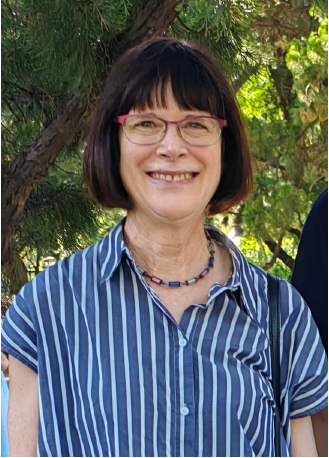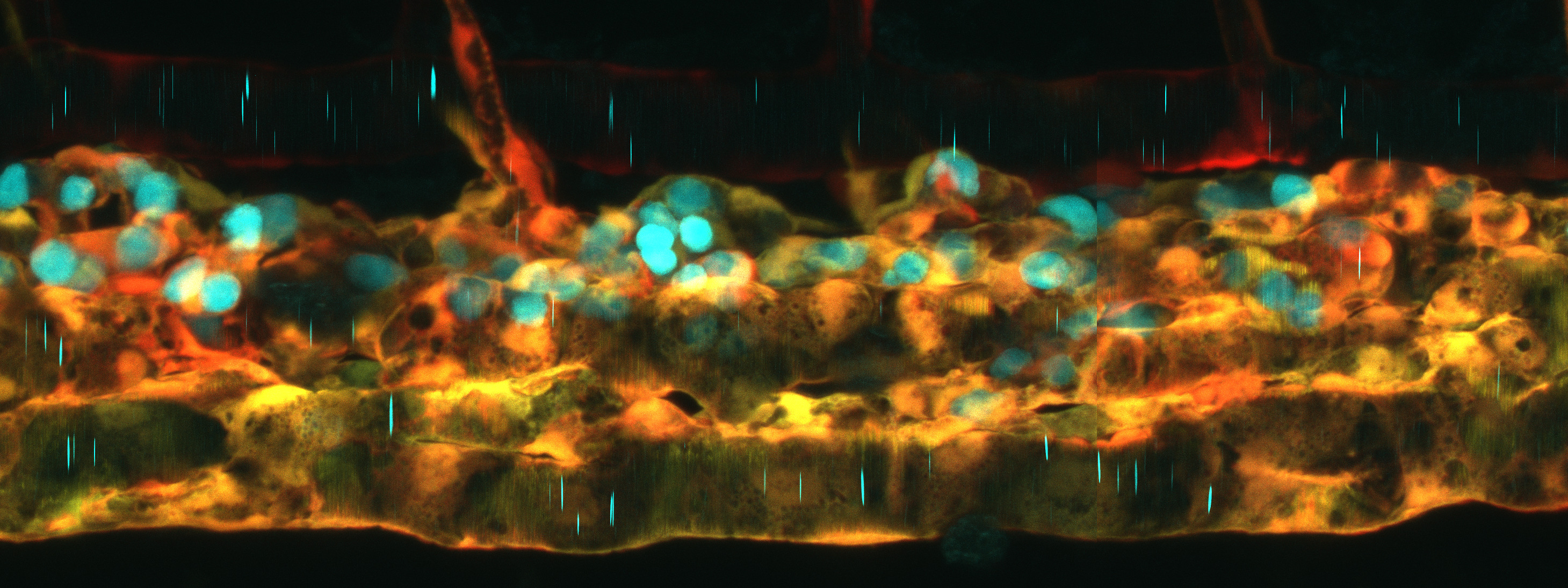Meet the International Awardee
 Mary Mullins
Mary Mullins
University of Pennsylvania
Philadelphia, PA, USA
Recipient of the European Zebrafish Society’s Christiane Nüsslein-Volhard Award for outstanding achievements in zebrafish research
This year’s recipient of the European Zebrafish Society’s Christiane Nüsslein-Volhard Award for outstanding achievements in zebrafish research is Mary Mullins, Professor of Cell and Developmental Biology at the University of Pennsylvania.  As a postdoc in the Nüsslein-Volhard lab, Mary established methods for large-scale zebrafish mutagenesis screens, and identified and described embryonic axial patterning phenotypes that became the foundation of her independent research programme. In her own lab at the University of Pennsylvania, Mary went on to perform challenging maternal effect screens with great success, uncovering many of the signalling mechanisms that set up axial patterning in the early embryo, with a particular focus on BMP signalling.  Her current research programme takes a broad and interdisciplinary approach, encompassing genetics, proteomics and mathematical modelling.  Mary has been tireless in supporting the zebrafish community through her committee and editorial work, and in training and mentoring junior colleagues.  For further details of her distinguished research career and service to the community, see:  https://www.ezsociety.org/cnv-awardee-2023
Current Research
What is the current research focus of your lab?
My lab focuses on two general areas of research which often intersect. One part of the lab studies the molecular mechanisms by which Bone Morphogenetic Protein (BMP) signaling patterns the embryonic dorsoventral axis as a morphogen. We investigate how the BMP morphogen gradient forms, is shaped, its function and regulation across space and time, as well as the signaling mechanism. Another part of the lab focuses on the maternal control of embryonic development, from establishment of oocyte polarity and regulators of body plan formation, to key players acting in the oocyte to embryo transition.
How long have you been working with zebrafish? How long have you had your own lab?
I have been working with zebrafish since the start of my postdoc in the late summer of 1990. I have had my own lab at the University of Pennsylvania since the fall of 1995.
Getting to know you better
Where were you born/where did you grow up?
I was born in Green Bay, Wisconsin, USA, but moved several times while growing up. My father worked in Chicago and my mother in Milwaukee, Wisconsin, so we lived for many years in a small town between those two cities in Waterford, Wisconsin.
Tell us something about yourself in one sentence.
I am the only scientist and academic in my family, who are mostly in the business world. I followed the business path initially in college and came to science late. After entering graduate school to obtain more skills in biochemistry, I fell in love with research and never turned back.
Science
Which of the current projects in your lab you are most excited about?
That is difficult to answer.  I love everything to do with BMP signaling in embryonic patterning, its role as a morphogen and its signaling mechanism. But I am equally excited by all the cool maternal-effect mutants we are studying and their roles in embryonic patterning, oocyte polarity, and the oocyte to embryo transition.
What advice would you give to someone considering a career in science/research?
Do what you love to do and don’t over think it too much. There are so many great jobs in science/research out there.
Which part of the PI job do you enjoy the most? Why?
Training graduate students and postdocs. It is very satisfying to be part of shaping trainees into highly rigorous, outstanding, independent-thinking scientists.
Outside of work
What do you enjoy doing outside of work/lab?
I love to swim in the summer, enjoy running in the other months, and generally love hiking and traveling.
What career would you have liked if you were not a scientist?
I had always intended to go to law school and get involved in politics/do good in the world.
 Anming Meng
Anming Meng
Tsinghua University
Beijing, China
Anming Meng won the inaugural Life Achievement Award of the Chinese Zebrafish Society
The 8th Chinese Zebrafish Conference (CZFC) was held August 4-7 in the beautiful coast city of Qingdao, Shandong Province, China. Approximately 900 zebrafish researchers, including PIs, postdocs, and graduate students across the country, attended the conference. CZFC is held biennially. This year featured ten plenary lectures, 103 concurrent session talks, 18 young scholars’ talks, and 121 poster presentations covering all aspects of zebrafish development, genetics, and disease models. Lila Solnica-Krezel of Washington University in St. Louis, Mary Mullins of the University of Pennsylvania, Didier Stainier of Max Planck Institute for Heart and Lung Research, and Kenneth Poss of Duke University were invited to give plenary lectures. Anming Meng of Tsinghua University, China, won the inaugural Life Achievement Award of the Chinese Zebrafish Society for promoting the Chinese zebrafish field and elucidating new mechanisms underlying embryonic development.




